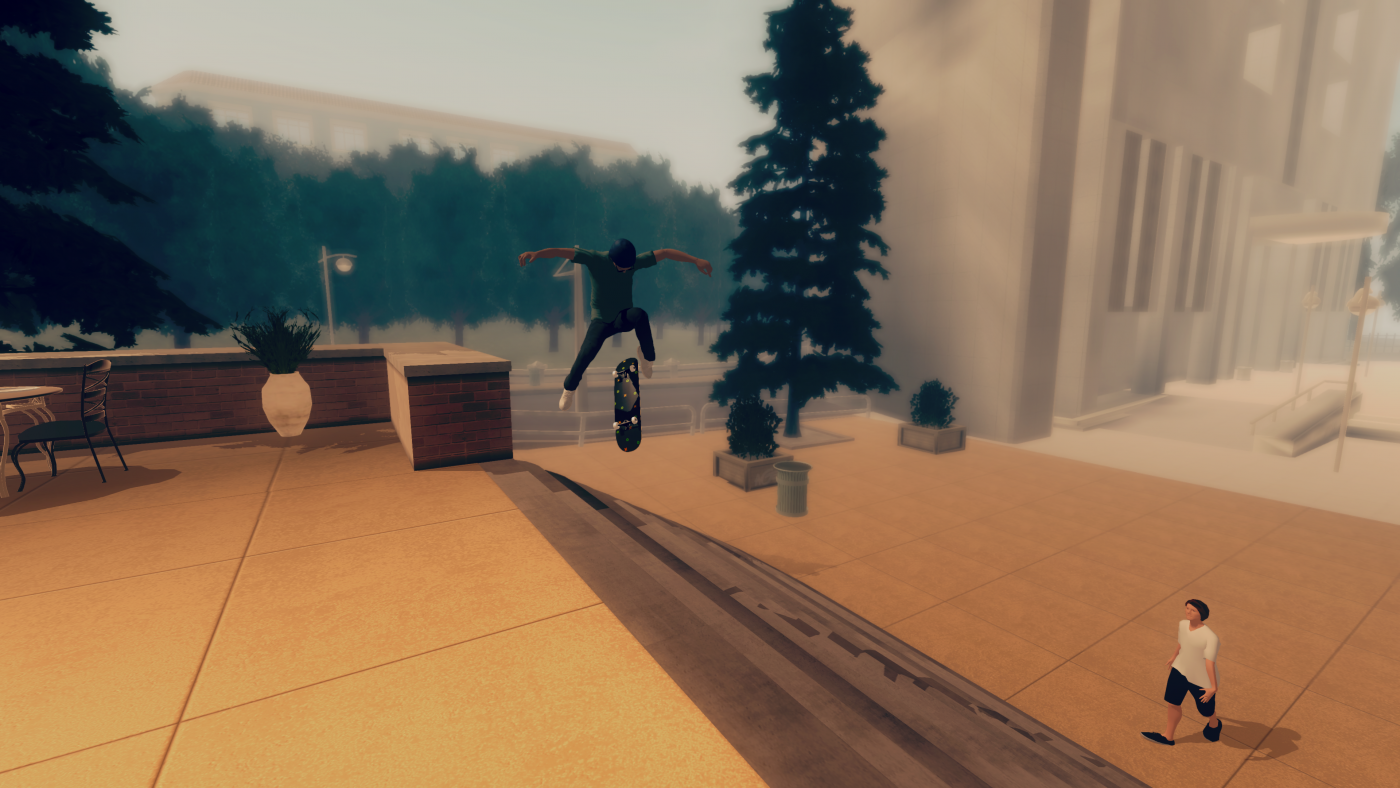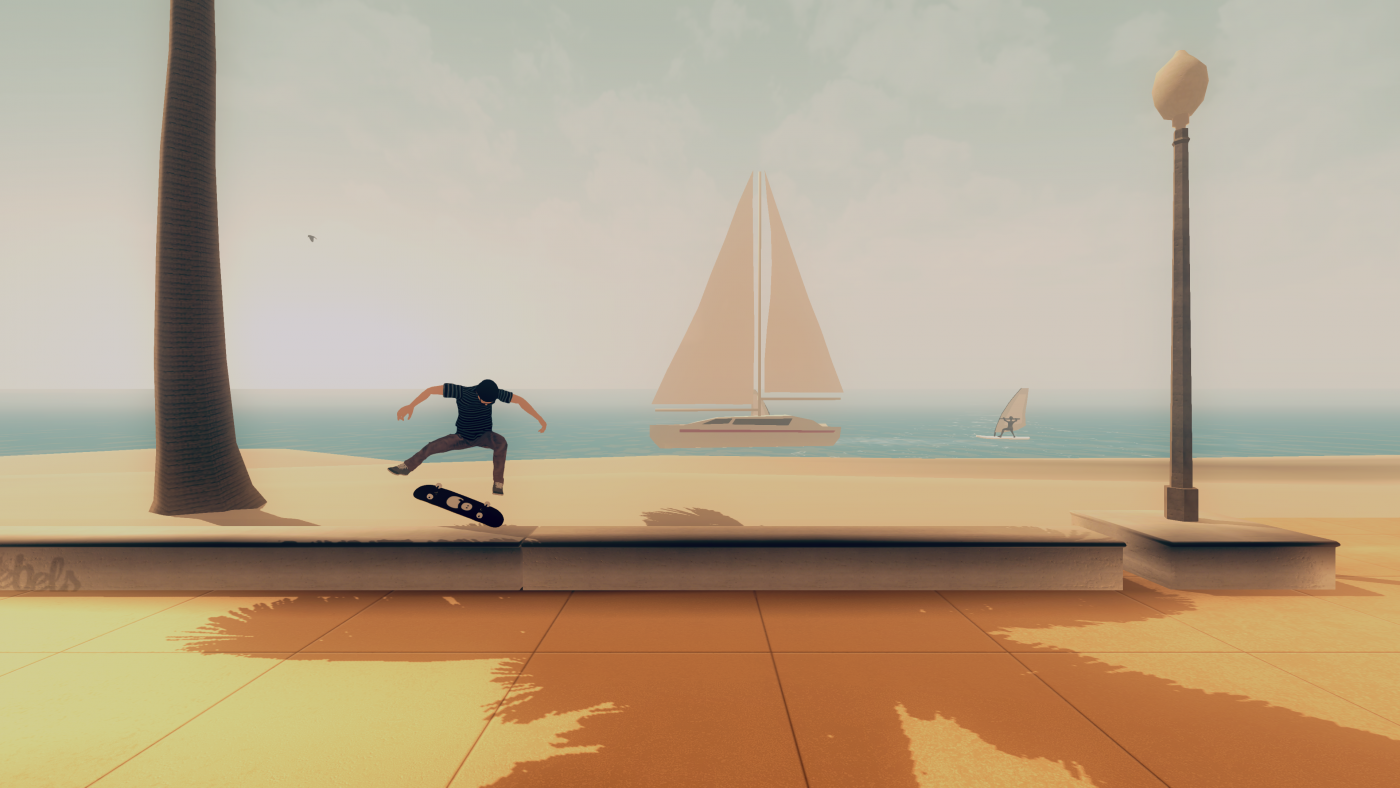Skateboarding games are an interesting genre, aren’t they? I remember my first being 720, which I played on my uncle’s C64 and the half-pipe in California Games, which I played on my ZX Spectrum. But then that was it until discovering Tony Hawk’s Pro Skater on the Playstation. I’ve since played many others, and despite not being a skater myself, nor into the culture, I have always loved them.
There is a reason for this long-winded intro, so to the point we get. I loved the original Tony Hawk’s games, and I also enjoyed the games that tried to get in on the act. Street Skater, Grind Session, Disney’s Extreme Skateboarding (seriously) and then there was the era of the ‘realistic skateboarding games in the form of EA’s Skate series and newer efforts such as Session and Skater XL.
But there is something about a good arcade skateboarding experience that just hits all the right notes, especially when it looks a bit different. Which is something OLLI OLLI did wonderfully well. Yet despite scratching that itch, I needed to be in a certain place mentally, where I’d want the challenge and be hyper-focused on beating them. So for a more chilled experience, I still really only had something like Skate or Session.

But along comes Skate City, which I have played now on both the Switch and PC, and for want of a better description, it is to OLLI OLLI, what Skate is to Tony Hawk. It is very much a similar game, but things are taken down a level in terms of the ‘extreme’.
Skate City has all the usual trappings, such as challenge modes, where you need to perform certain actions to mark them as done; you know the drill here. But something about Skate City made it shoot to the top of my list of games I like to relax with. Which is just that, Skate City is a super relaxing game.
Everything feels grounded and low key but never once feels boring or repetitive, and it is a game that lets you go at your own pace. To supplement this, the onboarding process is really well thought out. Early challenges introduce the game’s various mechanics without ever being overwhelming or insulting. Again all very chill.
From an ADHD point of view, I found Skate City to be very approachable. There are several tricks to perform, but they are all straightforward to pull off. Usually moving either the left or right stick in a direction. Grinding needs you to land on a ledge, but you can add in a tweak with one of the shoulder buttons and manuals or a simple button press too.
There isn’t an overwhelming number of tricks to learn either. Which honestly makes all the difference to me. I don’t feel the need to jump into the trick list every few seconds to check how to perform a tough combination of button presses and stick flicks to do a variant on a kick-flip. Instead, it keeps things straightforward to follow, and I appreciate that.

There is some progression within the game, which requires you to unlock as you go, but it never felt frustrating or beyond my reach, which is nice. It isn’t all smooth rides, though, as there is a lack of accessibility options beyond the most basic.
Rebinding of controls, colourblind options, on-screen trick list, assist options all missing. But there is a haptic feedback option which is really helpful. It helps me for sure, but I know others who can suffer from feedback on a controller. So it is good to see that option in there.
It is hard to call out the developers on the missing parts, as the game is so simple and chill to play that it didn’t feel like it needed a huge amount added. But it would allow a greater audience again to appreciate what is a wonderfully crafted game. That being said, as someone with ADHD, it nails what I need from a game like this. I still feel challenged, but without the need to ‘git gud’ as the kids will say.
Skate City is out now on Steam and Nintendo Switch for around the £12 mark from developer Agens.

